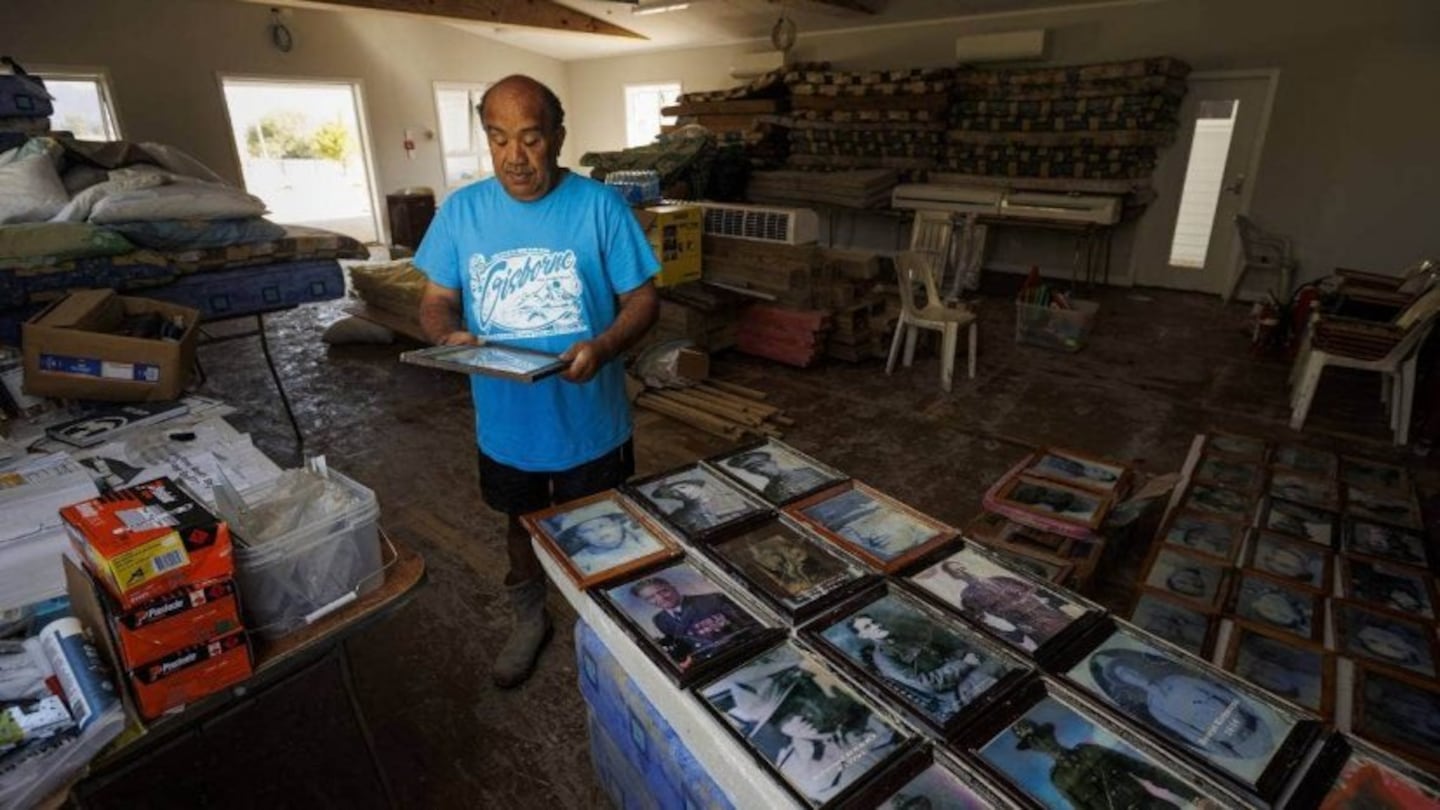Victor Waaka observes the photographs of passed loved ones. Photo / Stuff
Puketāwai Marae has seen weather events test it: Cyclone Bola in 1988 and Cyclone Hale over a month ago, which just missed the Bay of Plenty marae that lies on the flats, just north of Uawa/Tologa Bay on the East Coast.
But Cyclone Gabrielle would change everything. The Hikuwai River was up and, when it gets beyond a certain point, locals in Uawa know they’re in for it.
“Dare I say it,” said marae trustee Victor Waaka. “You don’t have to be a Nostradamus to know that when you get modelling from the South Pacific that shows what’s heading our way, you put the warning out. I understand the damage Hale caused but it missed us. We dodged a bullet.”
Not this time. Gabrielle didn’t spare the marae.
The night before the storm Victor and Jock Waaka made sure their Mum was okay, that she had a primus and enough water to boil up her fish head stew.
“We didn’t anticipate the water levels to come.
'Dirty, silty lake'
“We’re [the marae] six feet higher than we were before Bola. We weren’t high enough for Gabrielle. Gabrielle said ‘I’m going to test you guys’.”
“There was just this dirty, silty lake. It was horrific, hugely emotional.”
Thigh-high water gushed through the doors of a recently completed wharenui where treasured photographs of ancestors who fought in the wars were stored in boxes, waiting to be hung.
Land, where the pile holes for a new whare kai (the old one opened in 1958) were supposed to be driven next week, was covered by a carpet of sloppy, unforgiving grey muck.
The Waaka whānau and an army of volunteers have been back and forth to the marae every day for the past eight days, hauling wet mattresses out into the sun to dry, sorting and carting muddy kitchen equipment and crockery off-site to be washed, and carefully unpacking those precious photographs - in the hope at least some can be saved.
Jock and Victor are exhausted. It shows on their faces, yet they are very aware others are worse off.
'A volunteer for life'
“Yes, we’re devastated, we have to dig deep, and we don’t want to be coming back to do this ever again,” Victor said.
“But our thoughts are with those who have lost loved ones.
“Just the nightmare their whānau will be experiencing. Knowing your loved one has passed is one thing, not knowing is a whole other level of sadness.”
Jock mentions more rain has been forecast for this weekend. They had been planning to hold a working bee. If the weather held up, the brothers would be there, he said.
“Being part of a marae means you are a volunteer for life,” he said. “The only time you give up is when you’re in the ground.”



